Today, we would like you to show the difference between Kia Niro vs Hyundai Kona. A little bit of browsing on the internet shows some interesting facts.
We would also like to inform you in advance that fully electric versions are not included in this comparison, as we decided to cover EV comparisons in different format and chapter.
Video comparison: Kia Niro vs Hyundai Kona
Basic info
Kia Niro
Manufacturer: Kia Motors
Production: 2016 – present
Class: Subcompact crossover SUV
Assembly: South Korea
Hyundai Kona
Manufacturer: Hyundai Motor Company
Production: 2017 – present
Class: Subcompact crossover SUV
Assembly: South Korea, China
Exterior dimensions: Niro vs Kona
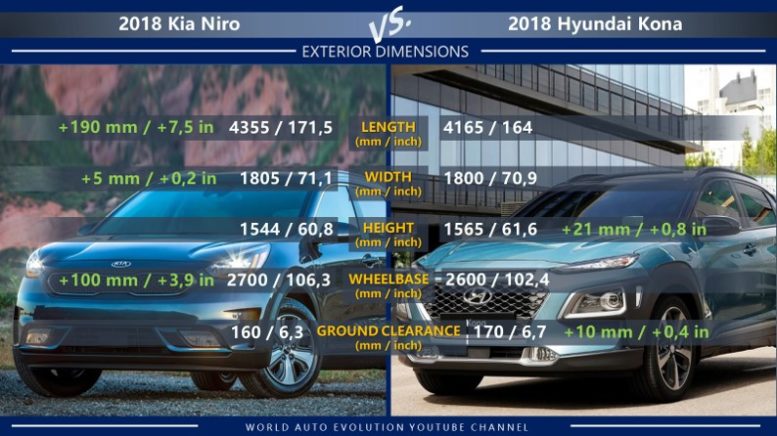
Kia Niro is 4.355 mm long, 190 mm longer than Hyundai Kona. The width of both cars is almost the same (around 1,8 meters), while Kona is 21 mm higher (1565 mm vs 1544 mm).
Due to longer total length, Niro expectedly has a bit longer wheelbase (2.700 mm), exactly 100 mm longer than Kona.
If you are very sensitive about ground clearance, 10 mm higher ground clearance in favor of Hyundai Kona might mean something to you, for all others this difference is not so important.
Interior dimensions: Kia Niro vs Hyundai Kona
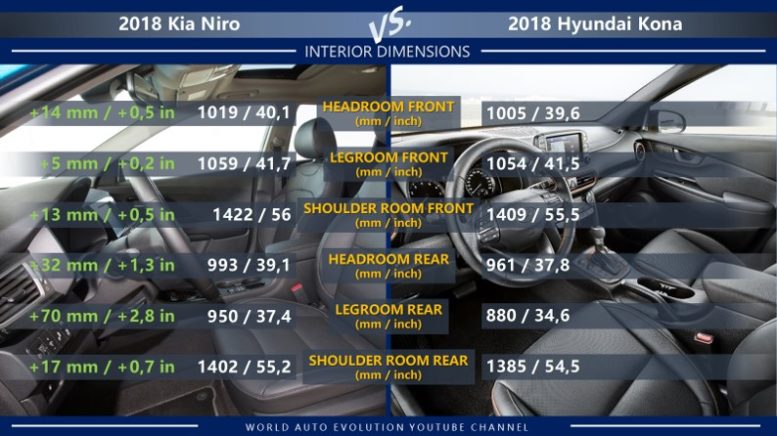
Because it is bigger on the outside, Kia Niro has a bit more space for its passengers too.
While front seat passengers might not spot any difference (the difference in headroom, legroom and shoulder room is few millimeters in favor of Kia Niro), the story on the rear bench is a bit different.
Kia has 32 mm more headroom, 17 mm more shoulder room and huge 70 mm more legroom. It might not seem a lot, but adult passengers on longer trips will appreciate the additional space on the rear seats, especially for their knees.
Luggage compartment and weight: Niro vs Kona
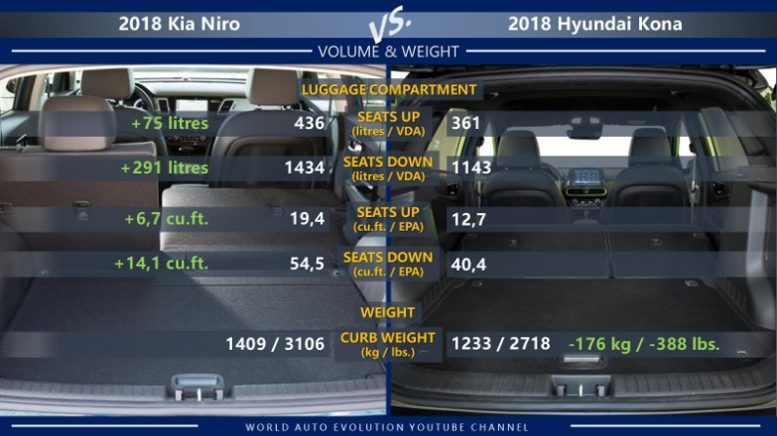
The consequence of longer length and wheelbase is also reflected in measurements of load space.
Kia Niro has 436 liters of luggage volume when rear seats are up, which is 75 liters more than Hyundai Kona.
When rear seats are folded down, the difference only gets bigger. The result of cargo volume with rear seats folded down in our Kia Niro vs Hyundai Kona comparison is 1,434 liters vs 1,143 liters. The clear winner here is Kia Niro with 291 liters more.
Kia Niro vs Hyundai Kona engines
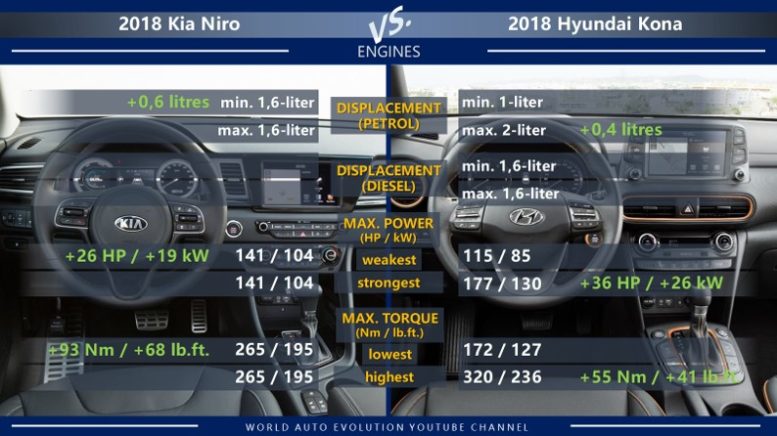
Both cars are available also as a fully electric vehicle, but in this comparison, those are not included. We cover EV comparisons in different format and chapter. Therefore, only petrol and/or diesel variants are described here.
Hyundai Kona has much more to offer here because you can choose between petrol and diesel engines, while Niro is only available as a petrol hybrid or plug-in hybrid option.
We could say that Kia Niro’s only engine sits somewhere in the middle of Hyundai Kona range.
Niro vs Kona performance
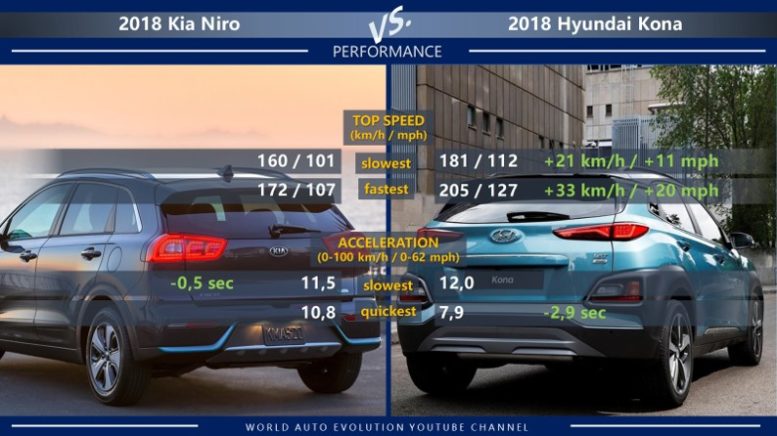
On average, Hyundai Kona has a higher top speed. Its fastest version is pretty fast and can reach a top speed of over 200 kilometers per hour (205 to be exact, or 127 mph).
On the other hand, the Kia Niro does not care much about achieving high top speeds and quick acceleration. Its purpose is to offer low fuel consumption and environmentally friendly emissions.
Niro vs Kona safety rating
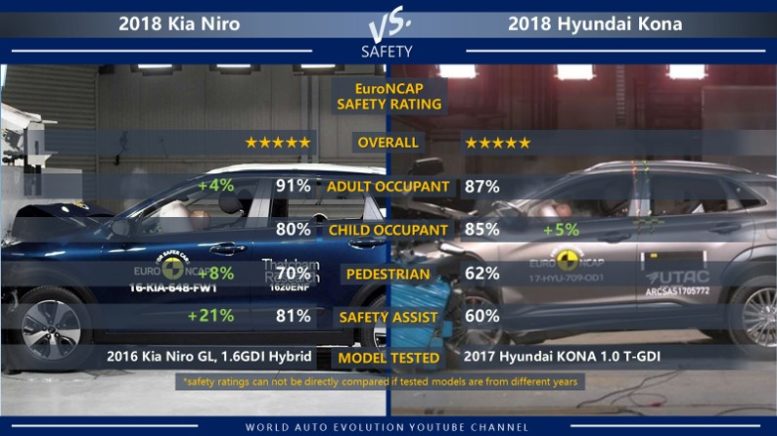
Both Kia Niro and Hyundai Kona did well in EuroNCAP crash test. 5 stars are the result of both vehicles, which is good. Tested Niro version offered better safety assist equipment and is also “nicer” to pedestrians.
Niro vs Kona price comparison
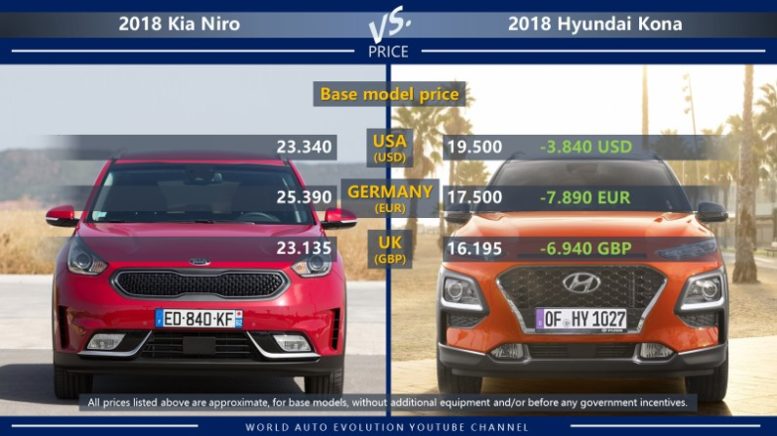
Since hybrid technology combined with the petrol engine is still not the cheapest possible, the price difference of base models is totally expected. These two cars are more similar in dimensions than in its purpose and price.
Image credit: Hyundai, Kia, World Auto Evolution Youtube Channel
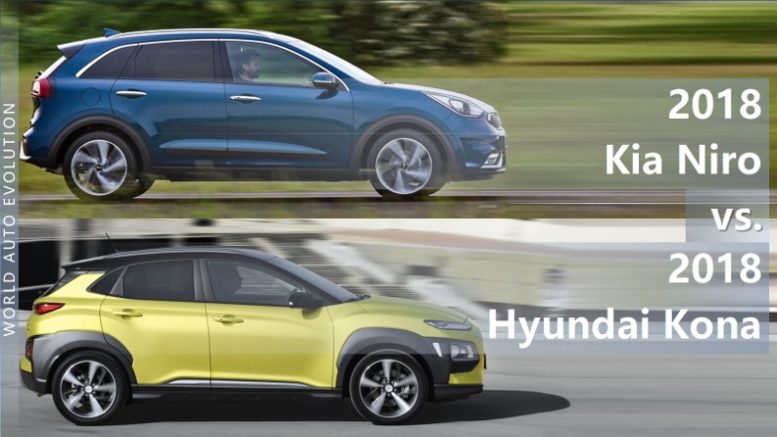

Be the first to comment on "Kia Niro vs Hyundai Kona: the difference"